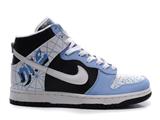A mixed bane
Even when "pain and anguish wring the brow," serving angels are rarely perceived that way; instead, they are more often seen as vultures. Critics portray them as the bosom lackeys of capitalism, toiling day and night to smooth the paths of the rich while turning a blind eye to the plight of the poor. Philip Stern tells us in *Lawyers on Trial* that their sins, both venial and mortal, include unnecessarily inflating costs for house sales and will confirmations, greedily monopolizing simple tasks that could be performed by paraprofessionals or laypeople, overcharging and deceiving clients, and then avoiding just punishment for their misdeeds by pretending to self-regulate. They perpetuate this nefarious, nit-picking trade through control of professional organizations and legal education.
These are the small crimes. Then there are the large-scale ones: collaborating with corporations to draft useful legislation, managing litigation for business defendants, or even defrauding consumers, swinging back and forth between government roles and private practice (which means corporate service). This ensures that big business always has easy access to the throne room. Whether the lawyer is an "in-house" corporate drone, a well-paid associate at a large firm, or a grand partner, they are generally servants of commerce and accomplices in the oppression of the masses.
Despite these costs, which vary greatly and are lumped together indiscriminately, Mr. Stern has, in a sweeping indictment of lawyers, blurred important distinctions. Some relate to cases of gross misconduct, such as when a corporate lawyer condones or facilitates bribery. Other practices may still be legal but run counter to the ideals of the profession itself. Some bar associations fight for broad definitions of criminal malpractice to maintain prohibitions like banning lay advice on tax matters, will drafting, or real estate closings. Price-fixing through tacit fee schedules has been banned by the Supreme Court but not entirely extinguished. There is still lobbying within sections of the profession to increase the complexity of probate and other laws to attract lucrative business. (Small and medium-sized firms benefit most from such activities while large firms fly higher and can afford to disapprove.) While such naked motives of self-interest shape the behavior of some lawyers and some collective actions of attorneys, they are not necessary features of practicing law defended or practiced by the profession as a whole.
There is an important moral distinction between some of these first examples. To say that some lawyers violate the minimum standards of their own profession only acknowledges the human weakness that is always with us. To say that the activities of some professional organizations and certain rules supported by many lawyers are entirely self-serving is a stronger condemnation...
About: A Parable of Automation | A Master Outsider | A Case of Hysteria



